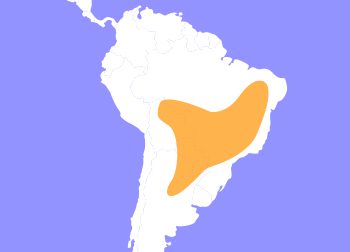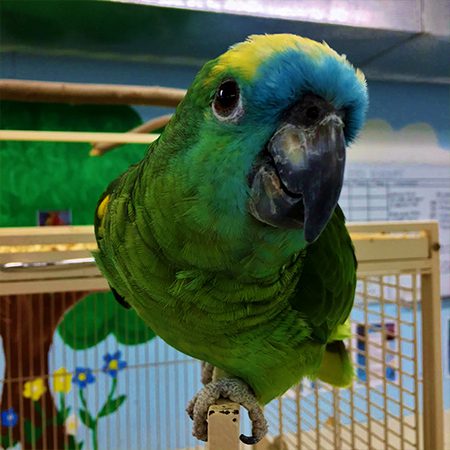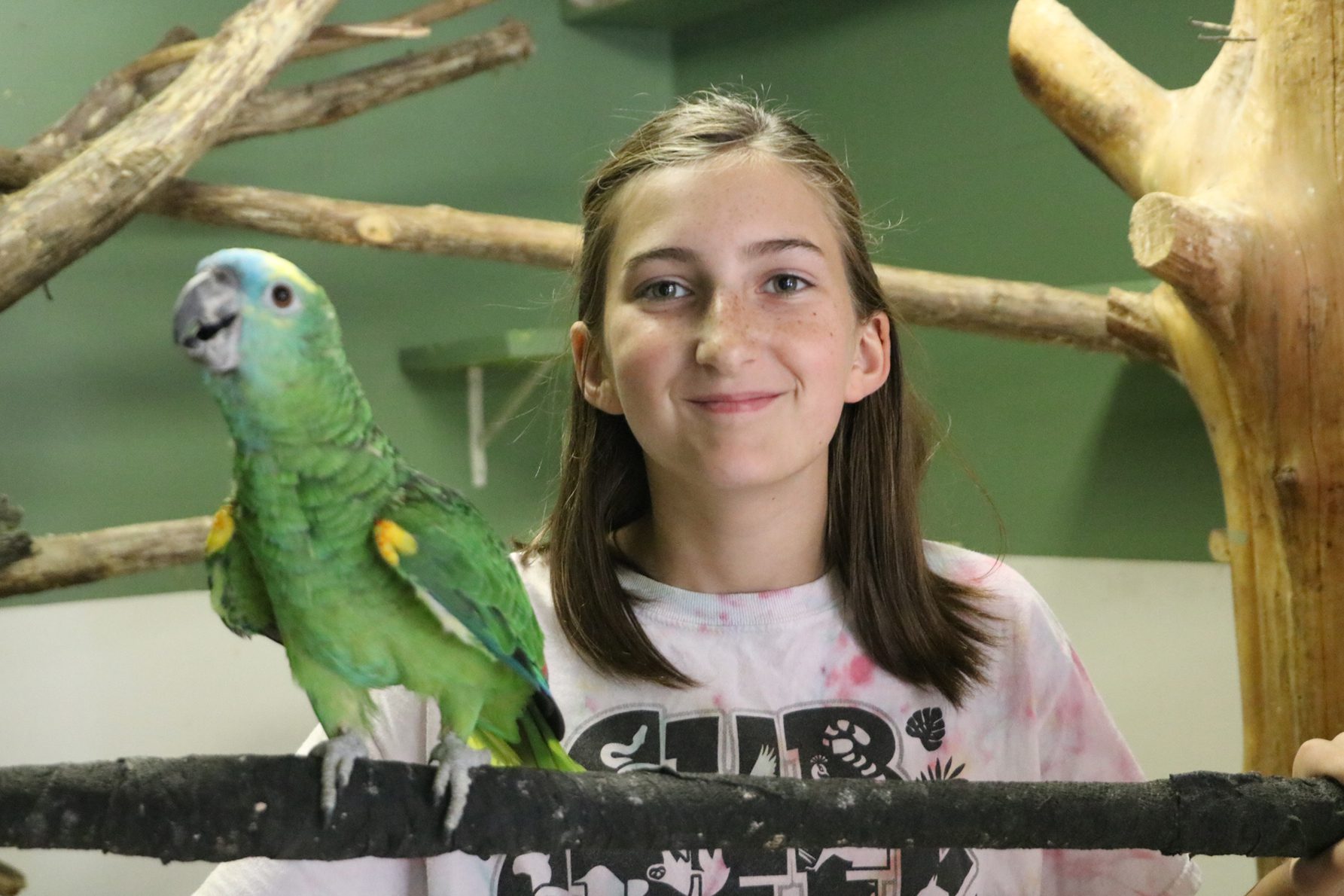Blue Fronted Amazon
Amazona aestiva
The blue-fronted amazon is a South American species of amazon parrot and one of the most common amazon parrots kept in captivity as a pet or companion parrot. Its common name is derived from the distinctive turquoise marking on its head just above its beak. Swedish botanist, Carl Linnaeus, was the first to record the blue-fronted amazon parrot in zoological records in 1758. The species has a very broad range, with wild populations can be found in Bolivia, Brazil, Paraguay, and northern Argentina, extending south to Buenos Aires. At least one feral population is known to be near Stuttgart, Germany. This is likely the result of pet parrots escaping and forming a flock that grew over time.
The blue-fronted amazon typically inhabits woodlands and forests. They live in large flocks and tend to form a strong bond with their mate. Like most parrots, they nest in tree cavities where the female takes care of most of the incubation duties and caring for the young. The blue-fronted amazon is a mainly green parrot about 38 cm (15 in) long. They have blue feathers on the forehead above the beak and yellow on the face and crown.
While generally non-aggressive and good with other birds, some individuals have been known to protect their keepers when they perceive danger. Dive-bombing the aggressor is a common behavior in these times. Additionally, the males may become slightly territorial when breeding or molting. Prolific talkers and singers, they vocalize often and can be very loud when they want to be. While blue-fronted amazons are good talkers, they are even better screamers. You can expect a morning wake up call and one again at sunset.

Blue Fronted Amazons live in the forests of South America, ranging from Bolivia to northern Argentina.
HABITAT -They inhabit woodlands and forests of South America.
DIET -In the wild they forage on fruits and berries, leaf buds, blossoms, seeds, and nuts.
FUN FACT -These birds are very good at mimicking human speech and song!
SOCIAL BEHAVIOR -They are social birds that thrive with companionship.
ACTIVITY -They are diurnal being most active during the day and resting during the evening.
PREDATORS -Predators include birds of prey such as hawks, falcons, and owls.
SIZE -The blue-fronted amazon is about 15 in long, weighing between 1.1 to 1.3 oz.
RELATIVES -Related species include the White Fronted and Yellow Naped Amazon.
CONSERVATION -Blue Fronted Amazons are categorized as NT (Near Threatened) by the IUCN.
Cub Creek Animal Care Information
Housing - Our Blue Fronted Amazons live in a multi species enclosure with other parrots and cockatoos. Our indoor flight enclosures are large rooms filled with trees, ramps, and other perches! Housing our birds in flight enclosures rather than small cages allows for more socialization and plenty of room to stretch their wings!
Diet - To ensure they get all the necessary nutrients, our Amazons are fed ZuPreem FruitBlend large bird pellets as well as fresh fruits and vegetables such as apples, bananas, shredded sweet potato, and greens. They also love getting peanuts as a treat! they are given fresh water everyday.
Enrichment - Our Blue Fronted Amazons are well accustomed to human interaction, being comfortable perching around humans. Much of this can be attributed to the continual enrichment through training, and social interaction with humans. Our Amazons can be very vocal singers and speakers, we’ve taught them songs like la cucaracha! During the summer, campers will make all kinds of toys for them out of cardboard, wood, or other pre-made materials.


